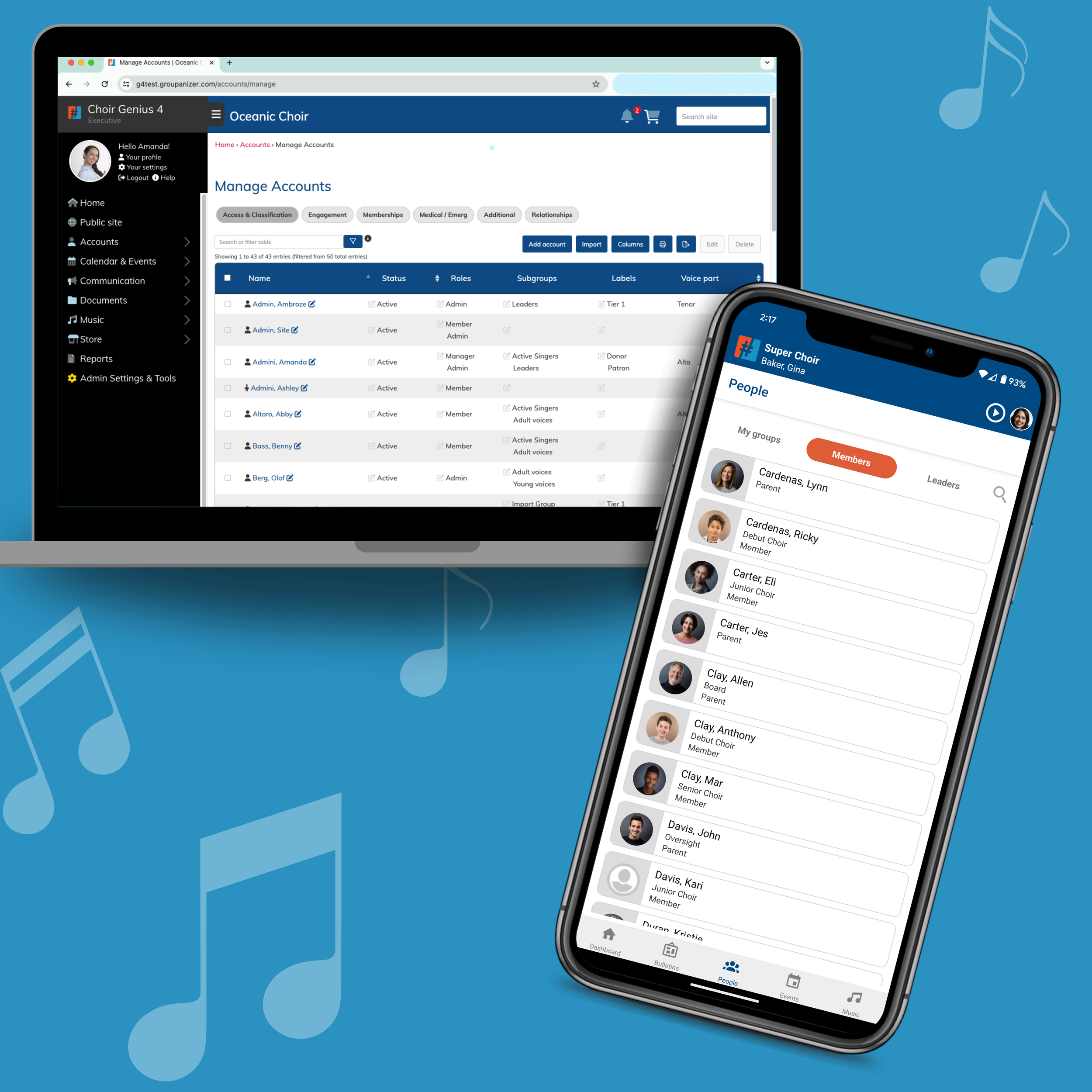Community Choir Rehearsal Planning: Tips for Choir Leaders
Creating a useful and engaging rehearsal plan for a community choir is essential to foster a vibrant and productive environment. Community choirs, often comprising volunteers with varying skill levels and musical backgrounds, require a thoughtful approach that enhances musical abilities while keeping members motivated and connected.
This guide outlines effective strategies for inclusive, efficient, and enjoyable rehearsals.
Know Your Singers: Assessing Skill Levels and Goals
Before developing a rehearsal strategy, get to know your choir members. Understand their musical backgrounds, skill levels, and expectations. This insight allows you to create balanced rehearsals that challenge more experienced singers while remaining accessible for beginners. Surveys or informal check-ins can provide valuable feedback and inform your planning.
Pro Tip: Use a short digital questionnaire to gather information about singers’ experience levels, availability, and musical interests - this data can help you form balanced sections and tailor your repertoire.
Choosing Inclusive and Engaging Choir Music
Select a diverse repertoire that reflects your community and encourages participation. Include a mix of genres, difficulty levels, and languages, and consider pieces with cultural or local significance. This variety keeps singers engaged and fosters musical growth across the ensemble.
Pro Tip: Involve choir members in the music selection process by providing a shortlist of pieces and allowing them to comment or vote on their favorites - this boosts buy-in and excitement.
Building a Productive Rehearsal Framework
Structure is key to successful rehearsals. Follow a consistent flow:
Warm-Ups: Begin with vocal exercises that focus on technique and vocal health.
Sectionals: Break into voice parts to address challenging sections and improve confidence.
Full Choir Practice: Bring everyone together to integrate and refine the music.
Run-Through: End with a full piece to build cohesion and celebrate progress.
Pro Tip: Share the rehearsal agenda several days in advance so singers know what to expect - this builds accountability and helps members prepare more effectively.
Prioritizing Vocal Wellness in Community Choirs
Many community choir members may lack formal vocal training. Incorporate vocal health education into warm-ups and provide tips for healthy singing habits. Encourage hydration, rest, and proper technique to ensure long-term vocal sustainability.
Pro Tip: Dedicate five minutes in each rehearsal to a quick vocal care tip - such as posture reminders or hydration tips - to reinforce healthy habits.
Balancing Challenges and Easy Wins
Strive to offer music and rehearsal pacing that encourages improvement without overwhelming singers. Introduce tiered opportunities, such as optional solos or small ensemble features, to accommodate different skill levels while maintaining ensemble unity.
Pro Tip: Rotate featured sections or small ensembles so more members get a chance to shine without pressure or competition.
Creating a Strong Social Environment
A sense of community is just as important as musical growth. Incorporate time for informal social interaction during rehearsals and plan events like post-rehearsal gatherings or seasonal parties. Strong personal connections improve retention and overall choir morale.
Pro Tip: Assign a rotating “social lead” or small committee to coordinate snacks, birthday shoutouts, or group outings to keep engagement high without overburdening the director.
Using Digital Tools to Support Choir Learning
Take advantage of technology to enhance learning outside rehearsal. Use rehearsal tracks, choir apps, and shared folders for practice materials. Choir management platforms - like Choir Genius! - that include scheduling, communication, and resource management can streamline administrative tasks and support musical growth.
Pro Tip: Leverage private chat apps or social media groups to keep members connected or send reminders before each rehearsal.
Embracing Feedback and Flexibility
Solicit regular feedback from choir members and be willing to listen and adapt. Whether through surveys, suggestion boxes, or open discussions, this feedback loop helps you respond to evolving needs and shows members that their voices matter.
Pro Tip: Include a two-minute “check-in” at the end of rehearsals or monthly open feedback sessions to encourage continuous input and foster open communication.
CG Feature Alert: Easily build custom forms for surveys, questionnaires, auditions, and more—right inside Choir Genius. Drag-and-drop simplicity means you can collect exactly the info you need from singers, volunteers, or audience members—no external tools required.
Setting Performance Goals for Motivation
Performance goals give your choir a shared sense of purpose. These can range from informal showcases to participation in community events or festivals. Clear milestones help with pacing and keep rehearsals focused.
Pro Tip: Utilize a shared rehearsal and performance calendar with visual milestones to help singers track progress toward their next concert.
Developing a Long-Term Vision for Your Choir
Maintain momentum by setting a broader vision. This might include collaborations with other choirs, repertoire milestones, outreach initiatives, or plans for touring. A long-term plan motivates your group and gives structure to your rehearsal planning year-round.
Pro Tip: Share your long-term vision with the choir at the start of each season—it helps singers feel connected to something bigger and committed to the journey.
Ready to streamline your choir rehearsals?
Explore how Choir Genius can support your planning, communication, and music learning with tools built for community choirs.
By balancing musical development with community building and using the right tools, you can create an inclusive, effective, and enjoyable rehearsal environment for your community choir.





